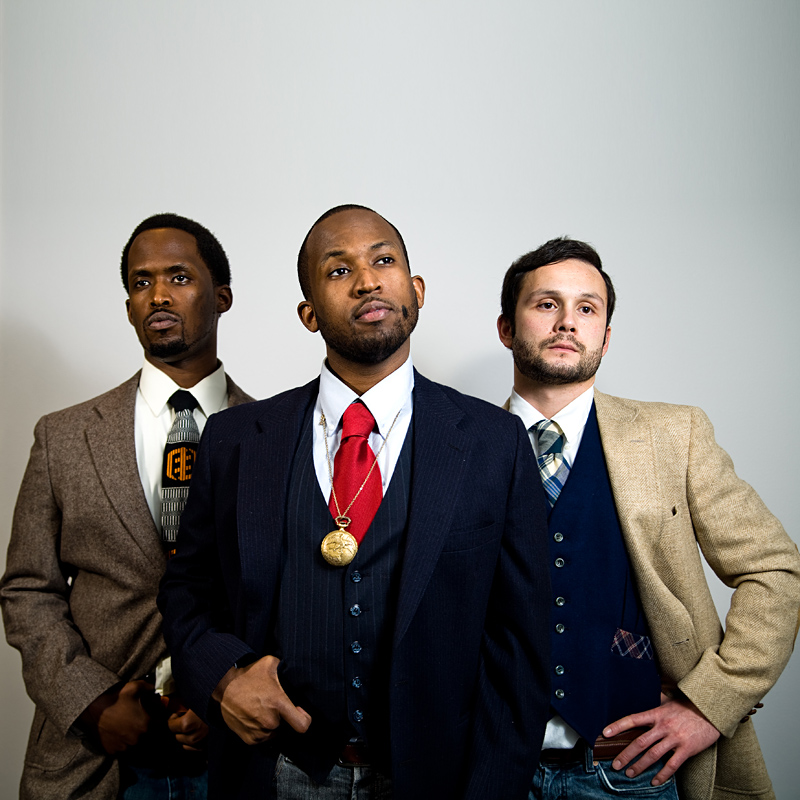If you’ve been to a concert at the Nectar Lounge recently—or any Seattle hip-hop show in the past decade—odds are you’ve seen Melissa Darby, better known simply as “Meli.” You probably just didn’t know it was her.
Nectar’s talent buyer for the past two years, Darby is the largely unsung hero responsible for drawing national acts like Pittsburgh it-rapper Wiz Khalifa, Swedish electro outfit Little Dragon, and a steady stream of local talent to the Fremont club. Now she’s got a new gig—in late January, Darby was poached by the Crocodile to be the storied Belltown venue’s new talent buyer, alongside Eli Anderson. In Darby’s words: “New year, new challenges, new growth.”
“The best talent buyers are young, which means you really have to grow into the business, and it’s been nice to see her do that,” says Crocodile publicist Kerri Harrop. “And I think [she and Eli] compliment each other very well. They actually share a lot of the same music tastes, but what they don’t share is where the real magic is.”
Darby likes to say that working in music is all she’s ever done. It’s true. The wavy-haired 29-year-old was only 11 when she first went to a show at Redmond’s Old Fire House, the former all-ages indie rock and hardcore haven where Northwest powerhouses like Modest Mouse and Fleet Foxes used to play.
“I [went there] every weekend, forever,” she says from the living room of her West Seattle home. “I think I even tried to pass it off a few times that I worked there as an actual employee.”
She wouldn’t have to fake it for long. Precocious even by all-ages standards, Darby was 13 the first time she spoke at a City Council meeting. She’d come to lobby for a repeal of Seattle’s notoriously draconian Teen Dance Ordinance, which made it nearly impossible for a club to hold under-21 concerts.
As her advocacy efforts expanded, so too did her list of contacts. In 1999, at a meeting in former Mayor Paul Schell’s office, Darby met then-UW student Sam Chesneau. That chance get-together led to the creation of SHOW, the Student Hip-Hop Organization of Washington, an influential collaboration that also included artists like Blue Scholars.
Darby then started promo group Obese Productions, whose Michelin Man–like logo—itself a play on Darby’s signature graffiti tag—eventually became the seal of approval for all Seattle hip-hop concerts. She returned to the Fire House, where her love for music had been forged (and was finally able to stop pretending to be an employee), later joined the Nectar staff, and then this year, retired Obese in favor of ReignCity, whose expanded portfolio includes soul, R&B, and electro-pop acts.
“I’m grown now,” Darby explains. “My tastes have broadened, and I want to make sure that when you see ‘ReignCity’ on something, you know that I’m chest-pressed to the stage, screaming along.”
Darby is the first to say she’s not in this line of work for the props—just as she jokes about how she definitely doesn’t do it for the money. But you’d be hard-pressed to find musicians or colleagues with a negative thing to say about her. “Show business isn’t a pretty world, and you’re really only as good as your reputation,” says Harrop. “[Darby’s] is great.”
The New Year may seem to have brought a lot of changes for Darby, but in other ways things are much the same. The Crocodile’s capacity is close to Nectar’s—both around 400. Just like last year, she sat down with her promotional team to talk about booking ReignCity’s 2011 “bucket list” of national artists. And of course there’s still her love for music, which has never gone away.
“The second this stops being fun, I don’t want to do it anymore,” she says. “Everything could change tomorrow, and I could go back to working with youth, and I’d be just as fulfilled as I am now. I’m blessed to even have survived this long, and totally tickled pink that I get the chance to go to Crocodile and see what I can do.”






